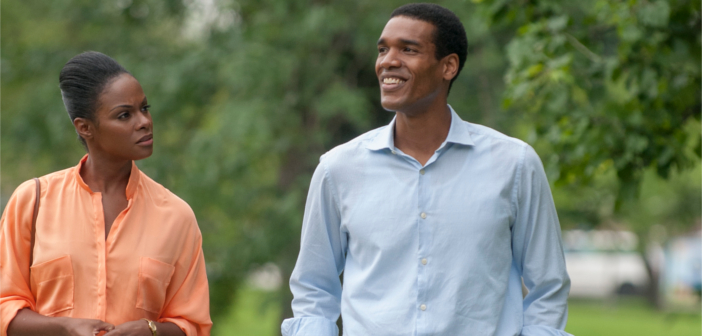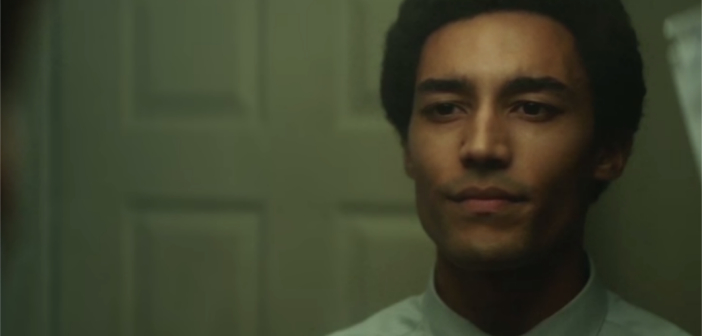What Can Cinematic Depictions of Obama’s Early Life Tell Us of His Legacy?
Films that deal directly with political figures are going to exist in a stasis of sorts – if they’re too critical of the individual’s politics, then one side of the divide can hurl criticism. If they’re not critical enough, the other side can do the same. It’s perhaps then for this reason that a lot of the movies that delve into an episode in the life of a political leader – the Queen say, or Thatcher – try to examine what that person meant in a cultural sense, what their public image was a reflection of, rather than offer a serious examination of policy. This caveat is only amplified when the politician is still in office, because trying to offer any sort of statement on that sitting politician will transform that criticism into cries of propaganda. Additionally, attempting to make a direct political comment without any form of hindsight will somewhat date the film (the muddled nature of Oliver Stones’ W. is proof of what happens when these rules are broken, though Josh Brolin is great as Dubya). That Richard Tanne and Vikram Ghandi could abide by these conditions is made all the more remarkable by another factor that’s unique to them: the story they aim to tell has been told infinitely better by its own subject.
Dreams from My Father, commissioned when Barack Obama became the first black head of the Harvard Law Review, is simultaneously one of the most engaging autobiographies written by any living president, and one of the most refreshingly candid. The fact that it was written about nine years before Obama had even thought of running for president gives it an honest edge that most political autobiographies lack (see Canadian prime minister Justin Trudeau’s squeaky-clean account of his origins in Common Ground, hastily written as he was gearing up to run in 2014). In Dreams from My Father Obama writes openly about past drug use, feelings of disenfranchisement as a young man and, as the title might suggest, his struggle to reconcile with his feelings on his father’s Kenyan heritage. Aside from its honesty, the book is exceedingly well written, with the president seeming more well-read than both his predecessor and successor to an absurd degree. This means trying to tell the same story feels rather unnecessary. Such a constraint means that Tanne and Ghandi are forced to deal with episodes in Mr. Obama’s life that that are relatively untouched or absent from his memoirs, specifically his courtship of Michelle (Dreams from My Father ends prior their meeting) and his time spent in Colombia University (only a small part of Dreams).

Of these two Obama biopics, Tanne’s Southside With You is ostensibly the far fluffier piece, chronicling the first couple’s first date on a long summers evening. They visit Chicago’s art institute (real) and a community meeting at which Barack speaks, before rounding off the day by seeing Spike Lee’s incendiary classic Do the Right Thing (also real). Barry is a radically different piece, with Ghandi exploring, as the title might suggest, Obama’s struggle for identity during his first year in university. Ultimately it is the difference in tone that allows each film to compliment the other, especially if viewed in chronological order, and this can be no more acutely observed in each film’s lead performance. Deven Terrell’s Barry is presented as a figure who’s excluded nearly everywhere he goes: his skin colour marks him out in Colombia’s classrooms, his education makes him stand out on the basketball court, and his somewhat peculiar parentage – a white mother and an absentee Kenyan academic father – excludes him from the social disenfranchisement experienced by a disproportionate amount of African Americans.
A major theme of Dreams for My Father is Obama’s personal dilemma as to whether or not he should use his education to try improve matters in society, or whether or not it should be a gateway to a better life for himself. Terrell captures this theme almost silently in his performance, looking an awful lot like the president but with a sense of self-doubt and uncertainty rarely seen in the real-life Obama. In Patrick Sawyers, star of Southside With You, we see a man that’s overcome these doubts and found some degree of direction in his life, to a point where we can even see flashes of that famous kitten like grace that Obama would become so renowned for. In Southside the central issue to Barack and Michelle’s budding relationship is the fact that she worries how she’ll be perceived in her predominantly white office space if she, the only black woman on staff, starts dating the only other black man in the company.

Barack tells Michelle that his struggles with identity manifested in a relationship he had with a white woman in Colombia, something we see play out in Barry. In Ta-Nehisi Coates excellent article “My President was Black”, Coates articulates how unique Obama was for effectively rising to power on his own terms instead of assimilating to white culture. This forms much of the basis, and indeed the conflict, of Barry’s second act, and is something that he talks about in length in Southside. In the latter, Obama tells Michelle that meeting his white girlfriend’s parents was a crossroads of sorts, where he had to decide what aspect of his identity he should pursue. We see this play out onscreen in Barry when Anya Taylor Joy invites Obama to a family wedding, which happens to be on the same day he gets the news that his father has died. At this wedding, which is underscored by Nina Simone’s take on Bob Dylan’s hymn ‘I Shall Be Released,’ Obama comes to realise that he stands to abandon his black identity to become a token part of a well-to-do liberal family. This is of course an admirable thing for the film to deal with, and indeed something that never really went away for the president (look no further than Ayelet Waldman’s simpering account of his first inauguration, perhaps the best example of smug white liberalism that exists solely to congratulate itself).
[arve url=”https://www.youtube.com/watch?v=E0kukTp77xE” align=”center” maxwidth=”750"]
The problem with placing all of these elements aside one another is that it feels as though the film is brashly trying to shoulder in as many themes from Obama’s book as possible, and it ends up losing a lot of the subtly and wit that Obama himself was able to infuse into his story. The film even ends with a scene where a young child asks our protagonist where he’s from, to which Barack (no longer Barry) replies that he’s “from everywhere – but I’m from here now” which is more head-slappingly cringey than anything in Southside. The only thing in Southside that comes close to this is when Obama speaks at a community event and mercifully the filmmakers refrain from having him actually say his election slogan. That said, Barry does redeem itself in a fantastic scene in which Terrell silently reacts to his mother’s enjoyment of Black Orpheus, a film that Obama tells us he found “silly” in his book but which Terrell’s face suggests that his slightly more aggrieved by his white mother’s love of such an “exotic” film.
Ultimately these films do leave us with something to mull over about the Obama years, though perhaps not as much they could have. It certainly says a lot that a generally entertaining and occasionally sweet rom-com could be made about Obama’s early years. As I mentioned earlier, political films can often struggle to imbue themselves with actual political content and this is almost totally missing from both Southside and Barry, with very little mentions of the policies that Obama would eventually enact. In this case of Southside, this feels slightly egregious considering that Chicago’s southern half is one of the most dangerous places in the western world, and while it’s hard to fault each film for refusing to allude to future Obama policies, the lack of any references to them does give them a bit of a self-congratulatory feel. In a sense this is a possible way that Obama will be remembered, as being the first black president, but for little else. This might seem a little disappointing, but considering who’s currently in the White House, perhaps these films can act as a reminder that the commander-in-chief need not always be a egotistical, fibbing billionaire.
[a[arve url=”https://www.youtube.com/watch?v=9yn02RS6IT0" align=”center” maxwidth=”750"]p>

